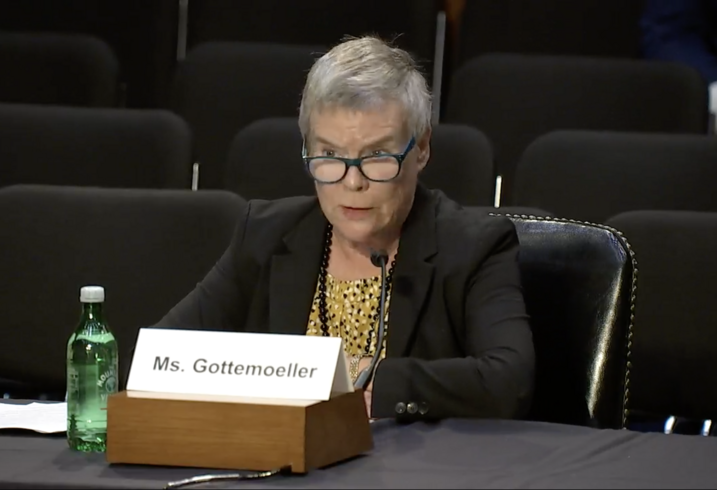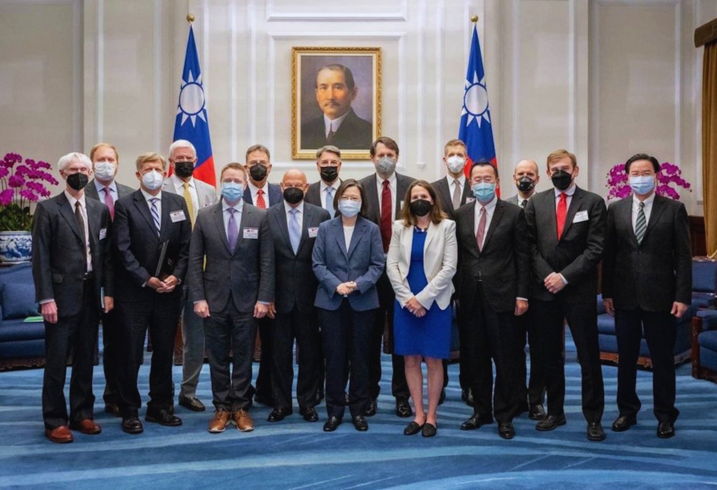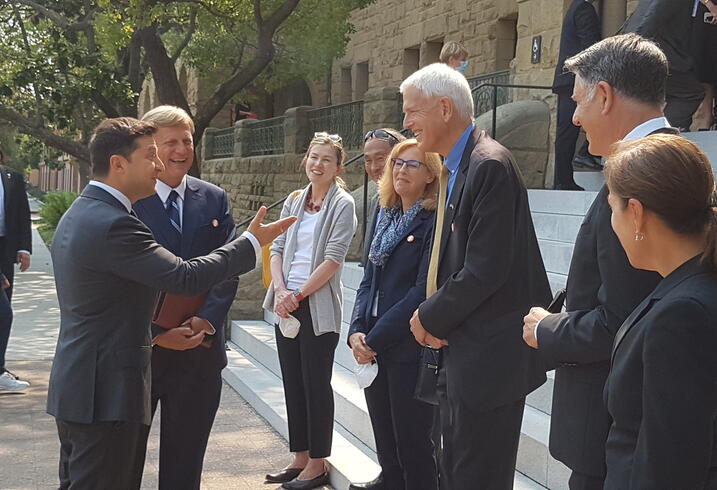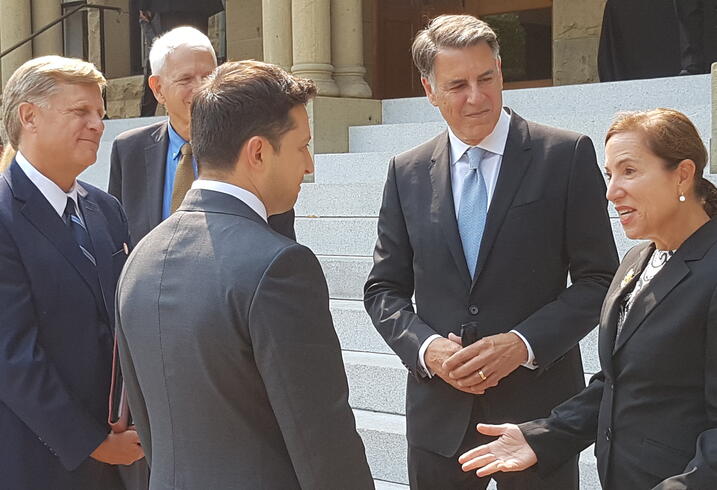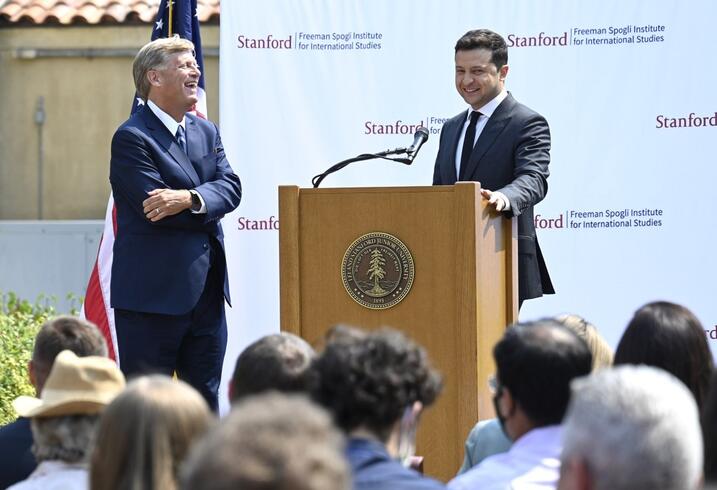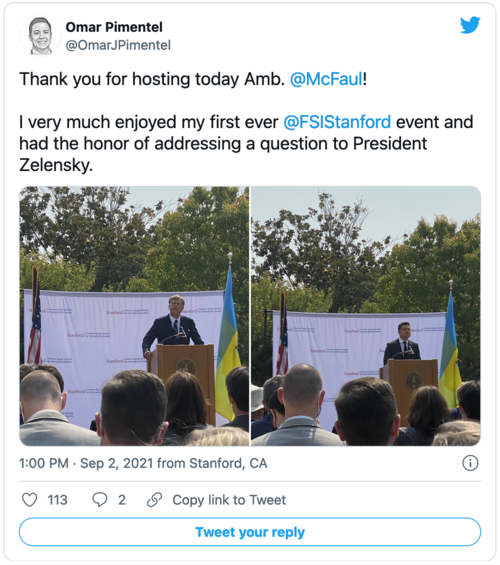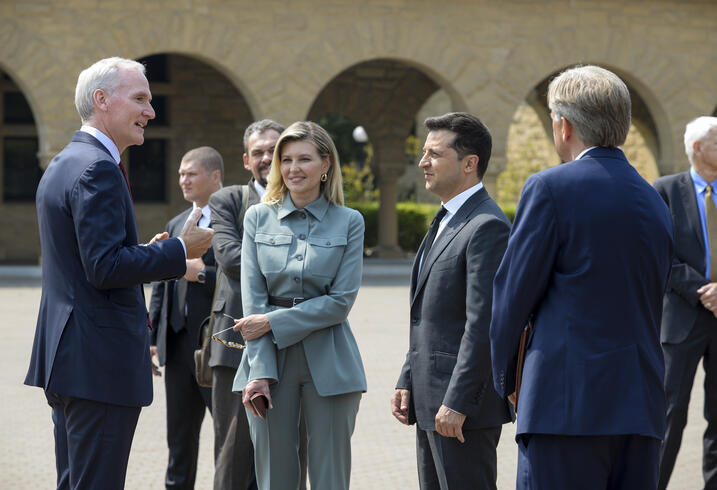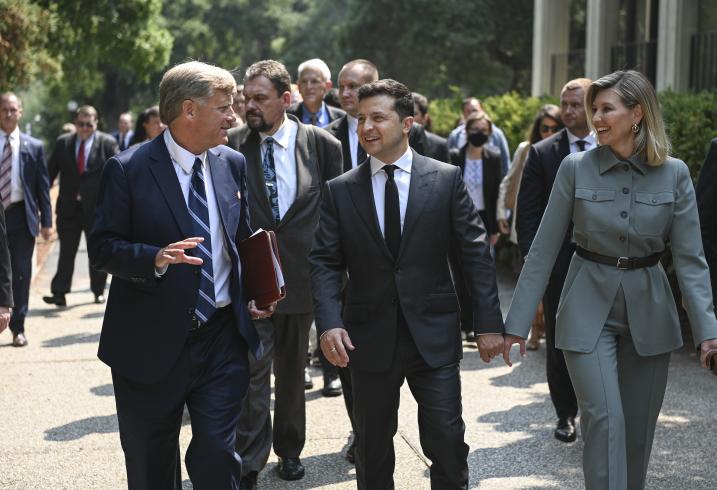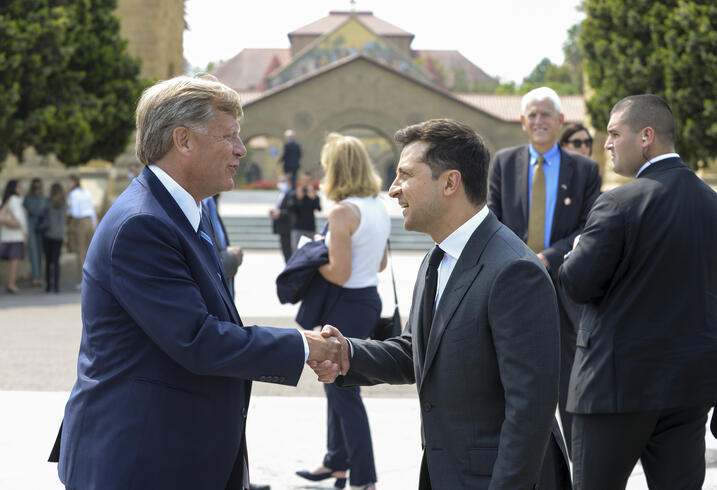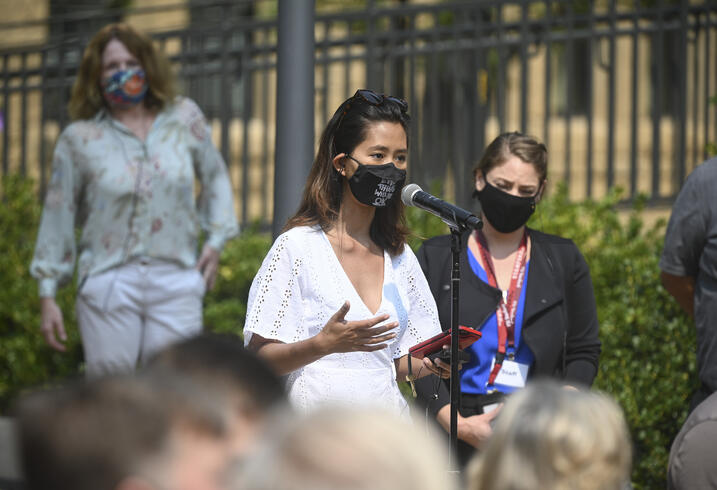Congressman Ro Khanna Addresses Intersection of America's Economy and U.S.-China Geopolitical Challenges
Many analysts, academics, and policymakers believe that in the coming years and decades, the biggest geopolitical challenges will lie between the West — particularly the United States — and China.
These policy challenges are often characterized in terms of rivalry and aggression, with some going so far as to frame U.S.-China relations as “a new Cold War.”
On April 24, in front of a large crowd assembled in Hauck Auditorium, U.S. Congressman Ro Khanna offered an alternative vision.
A former visiting lecturer at Stanford, Khanna returned to the Farm for an event co-hosted by the Freeman Spogli Institute for International Studies (FSI) and the Hoover Institution to share his perspective on how healthy economic competition between the U.S. and China can be used as vehicle to stabilize relations between the U.S. and China and promotes peace and prosperity on both sides.
A full recording of his remarks, including a follow-up discussion with FSI Director Michael McFaul and Amy Zegart, a Senior Fellow at the Center for International Security and Cooperation (CISAC), is available below.
An economist by training, Khanna advocates for new trade policies and strategic business partnerships to be front and center in U.S. diplomacy with China. This “rebalancing,” as Khanna termed it, is a call for both countries to pursue a fuller, more robust economic development strategy while continuing to engage with each other.
Drawing inspiration from President John F. Kennedy’s commencement address at American University in 1963, Khanna urged listeners not to view “conflict as inevitable, accommodation as impossible, and communication as nothing more than an exchange of threats,” when it comes to managing the U.S.-China relationship.
Instead, Khanna outlined four key principles he believes will be crucial to navigating the tense years ahead. These include:
- An economic reset to reduce trade deficits and tensions
- Open lines of communication
- Effective military deterrence
- Respect for Asian partners and robust economic engagement with the world
Khanna is clear-eyed that these goals will take time to realize. Bringing jobs back to the United States will require large investments in domestic infrastructure. Leaders in Washington will need patience, persistence, and help from partners outside of politics to bridge communication gaps and ensure Beijing picks up its phones in moments of tension. Reallocating defense spending in a way that is fair both to American taxpayers and partners like Taiwan will need cooperation from lawmakers on both sides of the aisle.
But Khanna is confident that these barriers can be overcome.
“I believe a constructive rebalancing with China can maintain the peace,” he told the audience. “It will not happen overnight. It will not happen with one president or one congressman. But it will happen if all of us - military and business leaders, educators, unions, activists, foreign policy experts and students work toward this goal. [We will win by] helping our own nation flourish and by putting our system and our promise of freedom on display for the world to see.”
Click the link to read Congressman Khanna's full remarks on
"Constructive Rebalancing with China."
Read More
![U.S. Congressman Ro Khanna [center] onstage with Amy Zegart [left] and Michael McFaul [right].](https://fsi9-prod.s3.us-west-1.amazonaws.com/s3fs-public/styles/895x498/public/2023-04/ro_khanna_mcfaul_zegart_china_hero.png?h=c4d9845d&itok=RO8Rnosq)
The congressman joined Michael McFaul and Amy Zegart for a discussion co-sponsored by the Freeman Spogli Institute for International Studies and the Hoover Institution on American economic resiliency in the face of U.S. competition with China.

![Rose Gottemoeller [left] stands with Hillary Clinton [right] in the Treaty Room at the U.S. Department of State in Washington D.C.](https://fsi9-prod.s3.us-west-1.amazonaws.com/s3fs-public/styles/680x378/public/2022-12/gottemoeller_clinton_state_department_policy_flikr_hero.png?itok=nhZBZm70)

